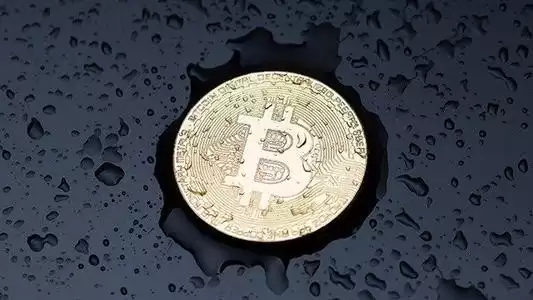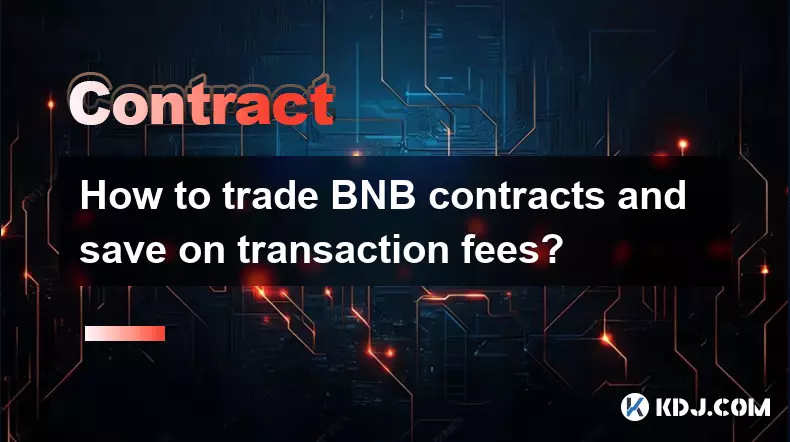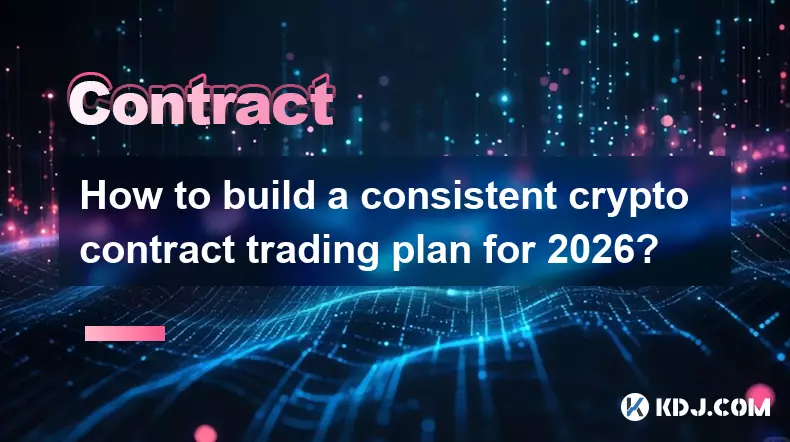-
 bitcoin
bitcoin $87959.907984 USD
1.34% -
 ethereum
ethereum $2920.497338 USD
3.04% -
 tether
tether $0.999775 USD
0.00% -
 xrp
xrp $2.237324 USD
8.12% -
 bnb
bnb $860.243768 USD
0.90% -
 solana
solana $138.089498 USD
5.43% -
 usd-coin
usd-coin $0.999807 USD
0.01% -
 tron
tron $0.272801 USD
-1.53% -
 dogecoin
dogecoin $0.150904 USD
2.96% -
 cardano
cardano $0.421635 USD
1.97% -
 hyperliquid
hyperliquid $32.152445 USD
2.23% -
 bitcoin-cash
bitcoin-cash $533.301069 USD
-1.94% -
 chainlink
chainlink $12.953417 USD
2.68% -
 unus-sed-leo
unus-sed-leo $9.535951 USD
0.73% -
 zcash
zcash $521.483386 USD
-2.87%
Is Bitcoin contract leveraged
Trading Bitcoin contracts involves leverage, amplifying potential gains and losses, emphasizing the importance of managing risk through stop-loss orders, controlled leverage, and proper market knowledge.
Nov 14, 2024 at 10:25 am

Is Bitcoin Contract Leveraged?
A Bitcoin contract is a financial instrument that allows traders to speculate on the price of Bitcoin without actually owning the underlying asset. This can be a risky but potentially lucrative way to trade Bitcoin, especially for those who are looking to amplify their profits.
One of the key features of Bitcoin contracts is that they are leveraged. This means that traders can control a larger amount of Bitcoin than they actually have in their account. This can be a useful way to increase the potential profits of a trade, but it also comes with increased risk.
There are a number of different types of Bitcoin contracts available, each with its own unique features and risks. Some of the most common types of Bitcoin contracts include:
- Futures contracts: Futures contracts are agreements to buy or sell a certain amount of Bitcoin at a set price on a future date.
- Options contracts: Options contracts give traders the right, but not the obligation, to buy or sell a certain amount of Bitcoin at a set price on a future date.
- CFD contracts: CFD contracts are contracts for difference, which allow traders to speculate on the price of Bitcoin without actually owning the underlying asset.
Trading Bitcoin contracts is similar to trading other types of financial instruments. However, there are a few key things to keep in mind:
- Choose a reputable exchange: The first step is to choose a reputable Bitcoin exchange that offers contract trading. There are a number of different exchanges to choose from, so it is important to do your research and find one that is trustworthy and reliable.
- Open an account: Once you have chosen an exchange, you will need to open an account. This will typically involve providing some personal information, such as your name, address, and email address.
- Fund your account: Once you have opened an account, you will need to fund it with Bitcoin. This can be done by transferring Bitcoin from your own wallet or by purchasing Bitcoin on the exchange.
- Place an order: Once you have funded your account, you can start placing orders. To place an order, you will need to specify the type of contract you want to trade, the amount of Bitcoin you want to buy or sell, and the price you want to execute the order at.
Trading Bitcoin contracts can be a risky but potentially lucrative way to trade Bitcoin. However, it is important to be aware of the risks involved before getting started. Some of the risks of trading Bitcoin contracts include:
- Leverage: Leverage can amplify both profits and losses. This means that it is possible to lose more money than you have in your account.
- Volatility: The price of Bitcoin is highly volatile, which can make trading Bitcoin contracts even more risky.
- Liquidity: The Bitcoin futures market is relatively illiquid, which can make it difficult to get in and out of trades quickly.
There are a number of steps you can take to minimize the risks of trading Bitcoin contracts:
- Use a stop-loss order: A stop-loss order is an order that automatically sells your Bitcoin contracts if the price falls below a certain level. This can help you to limit your losses if the market moves against you.
- Manage your risk: It is important to manage your risk by only trading with money that you can afford to lose. You should also avoid overleveraging your account.
- Educate yourself: It is important to educate yourself about Bitcoin contracts before you start trading. This will help you to understand the risks involved and how to mitigate them.
Disclaimer:info@kdj.com
The information provided is not trading advice. kdj.com does not assume any responsibility for any investments made based on the information provided in this article. Cryptocurrencies are highly volatile and it is highly recommended that you invest with caution after thorough research!
If you believe that the content used on this website infringes your copyright, please contact us immediately (info@kdj.com) and we will delete it promptly.
- BlockDAG's $452M Presale Nears End: The $0.0005 Upside Entry Opportunity for 2026
- 2026-02-03 15:40:02
- IronWallet Revolutionizes Crypto: Multi-chain Wallet, Gasless Transactions, and Privacy-First Security Take Center Stage
- 2026-02-03 15:55:01
- The Epstein Files & Satoshi's Shadow: Emails Exposed, Crypto's Past Reimagined
- 2026-02-03 12:35:01
- BlockDAG's $450M+ Presale Countdown: The 100x Opportunity About to Vanish
- 2026-02-03 12:50:01
- Bitcoin Price Plummets Below Key Thresholds Amid Market Shift: What Investors Need to Know
- 2026-02-03 13:20:01
- SpaceCoin Unveils 10% APR Staking Program, Pioneering Decentralized Satellite Internet
- 2026-02-03 13:20:01
Related knowledge

How to close a crypto contract position manually or automatically?
Feb 01,2026 at 11:19pm
Manual Position Closure Process1. Log into the trading platform where the contract is active and navigate to the 'Positions' or 'Open Orders' tab. 2. ...

How to understand the impact of Bitcoin ETFs on crypto contracts?
Feb 01,2026 at 04:19pm
Bitcoin ETFs and Market Liquidity1. Bitcoin ETFs introduce institutional capital directly into the spot market, increasing order book depth and reduci...

How to trade DeFi contracts during the current liquidity surge?
Feb 01,2026 at 07:00am
Understanding Liquidity Dynamics in DeFi Protocols1. Liquidity surges in DeFi are often triggered by coordinated capital inflows from yield farming in...

How to use social trading to copy crypto contract experts?
Feb 02,2026 at 07:40am
Understanding Social Trading Platforms1. Social trading platforms integrate real-time market data with user interaction features, enabling traders to ...

How to trade BNB contracts and save on transaction fees?
Feb 03,2026 at 12:39am
Understanding BNB Contract Trading Mechanics1. BNB contracts are derivative instruments traded on Binance Futures, allowing users to gain leveraged ex...

How to build a consistent crypto contract trading plan for 2026?
Feb 02,2026 at 10:59pm
Defining Contract Specifications1. Selecting the underlying asset requires evaluating liquidity depth, historical volatility, and exchange support acr...

How to close a crypto contract position manually or automatically?
Feb 01,2026 at 11:19pm
Manual Position Closure Process1. Log into the trading platform where the contract is active and navigate to the 'Positions' or 'Open Orders' tab. 2. ...

How to understand the impact of Bitcoin ETFs on crypto contracts?
Feb 01,2026 at 04:19pm
Bitcoin ETFs and Market Liquidity1. Bitcoin ETFs introduce institutional capital directly into the spot market, increasing order book depth and reduci...

How to trade DeFi contracts during the current liquidity surge?
Feb 01,2026 at 07:00am
Understanding Liquidity Dynamics in DeFi Protocols1. Liquidity surges in DeFi are often triggered by coordinated capital inflows from yield farming in...

How to use social trading to copy crypto contract experts?
Feb 02,2026 at 07:40am
Understanding Social Trading Platforms1. Social trading platforms integrate real-time market data with user interaction features, enabling traders to ...

How to trade BNB contracts and save on transaction fees?
Feb 03,2026 at 12:39am
Understanding BNB Contract Trading Mechanics1. BNB contracts are derivative instruments traded on Binance Futures, allowing users to gain leveraged ex...

How to build a consistent crypto contract trading plan for 2026?
Feb 02,2026 at 10:59pm
Defining Contract Specifications1. Selecting the underlying asset requires evaluating liquidity depth, historical volatility, and exchange support acr...
See all articles

























![Discontinuum by: ArchitechGD 100% (1 coin) (Mobile) Geometry Dash [2.2] Discontinuum by: ArchitechGD 100% (1 coin) (Mobile) Geometry Dash [2.2]](/uploads/2026/02/03/cryptocurrencies-news/videos/origin_69814d99e6b61_image_500_375.webp)
















































